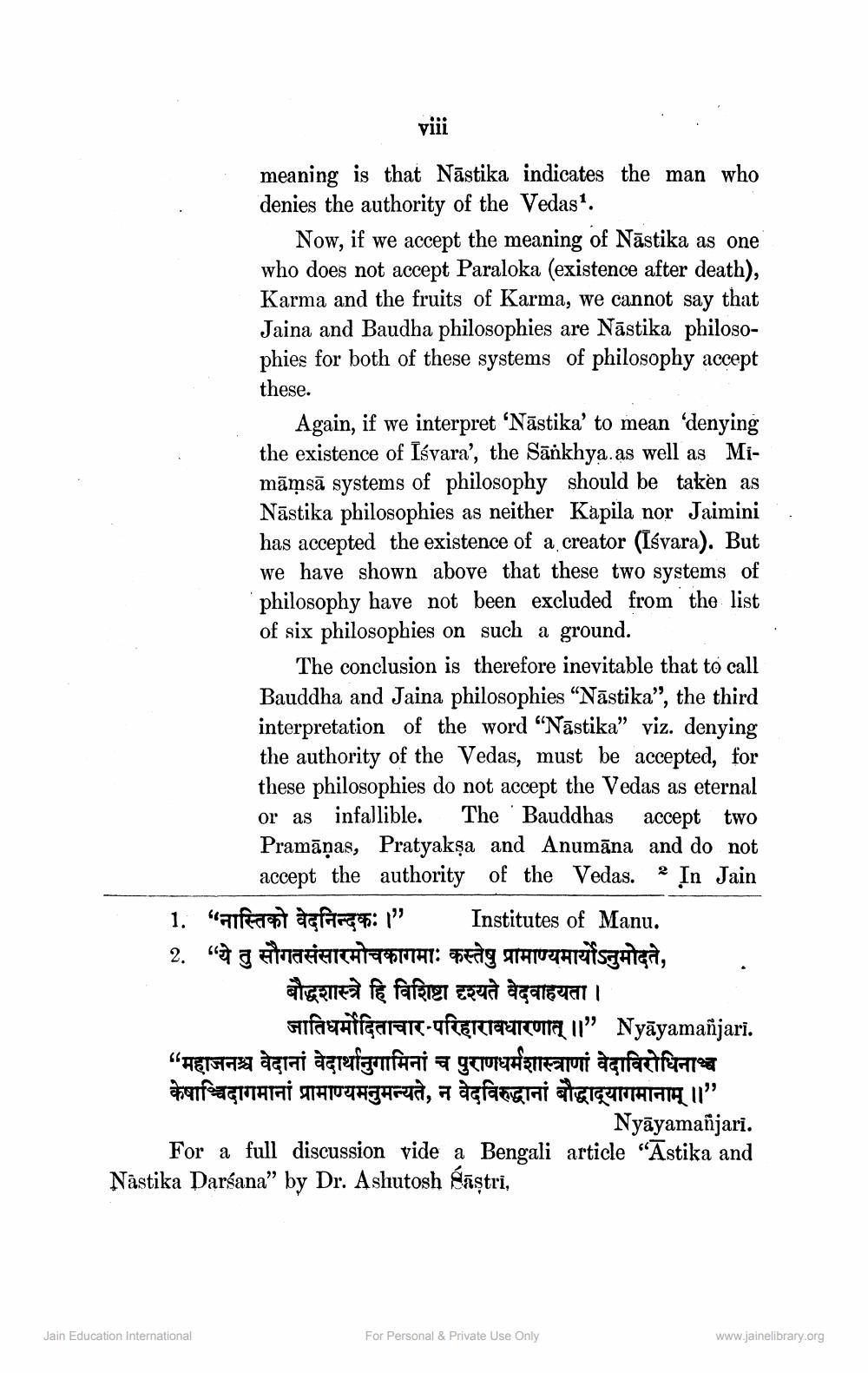________________
viii
meaning is that Nastika indicates the man who denies the authority of the Vedas1.
Now, if we accept the meaning of Nastika as one who does not accept Paraloka (existence after death), Karma and the fruits of Karma, we cannot say that Jaina and Baudha philosophies are Nastika philosophies for both of these systems of philosophy accept these.
Again, if we interpret 'Nastika' to mean 'denying the existence of Isvara', the Sankhya.as well as Mimāmsā systems of philosophy should be taken as Nastika philosophies as neither Kapila nor Jaimini has accepted the existence of a creator (Isvara). But we have shown above that these two systems of philosophy have not been excluded from the list of six philosophies on such a ground.
The conclusion is therefore inevitable that to call Bauddha and Jaina philosophies "Nastika", the third interpretation of the word "Nastika" viz. denying the authority of the Vedas, must be accepted, for these philosophies do not accept the Vedas as eternal or as infallible. The Bauddhas accept two Pramāņas, Pratyakṣa and Anumana and do not accept the authority of the Vedas. 2 In Jain 1. “ नास्तिको वेदनिन्दकः । " Institutes of Manu. 2. “ये तु सौगतसंसारमोचकागमाः कस्तेषु प्रामाण्यमार्योऽनुमोदते, बौद्धशास्त्रे हि विशिष्टा दृश्यते वेदवाहयता ।
Jain Education International
जातिधर्मोदिताचार परिहारावधारणात् ||" Nyāyamañjari. “महाजनश्च वेदानां वेदार्थानुगामिनां च पुराणधर्मशास्त्राणां वेदाविरोधिना केषाञ्चिदागमानां प्रामाण्यमनुमन्यते, न वेदविरुद्धानां बौद्धाद्यागमानाम् ॥”
Nyāyamañjarī. For a full discussion vide a Bengali article "Astika and Nastika Darśana" by Dr. Ashutosh Éaştri,
For Personal & Private Use Only
www.jainelibrary.org




